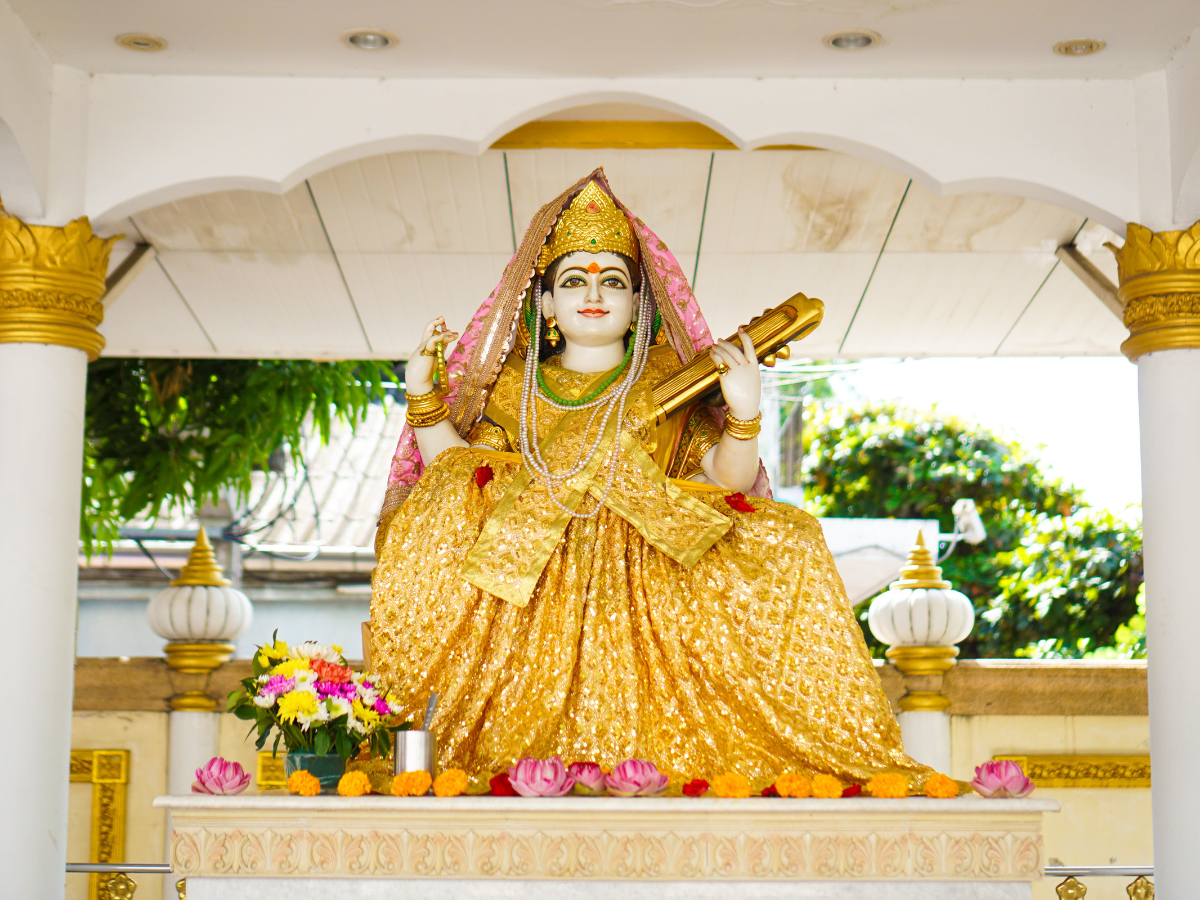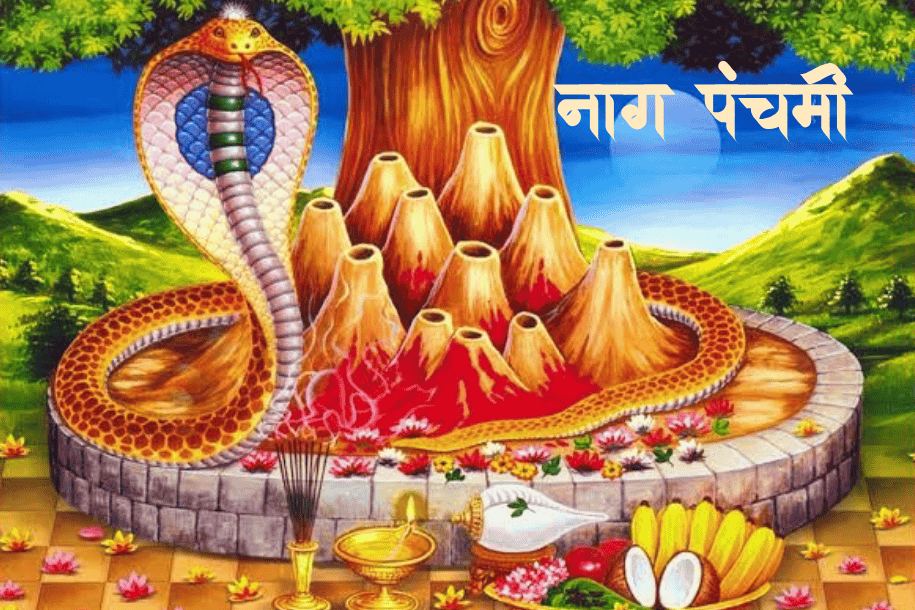Vasant (Basant) Panchami: Celebrating the Festival of Spring, Knowledge, and Saraswati
Vasant Panchami holds significant importance in Hinduism and is a day dedicated to the worship of Goddess Saraswati. Celebrated with grandeur, especially in Eastern India, it is marked by women adorning themselves in yellow attire to honor the Goddess. Among the six seasons, Vasant is cherished the most for its natural beauty and vibrance.
This festival is synonymous with the blooming of flowers, the spreading of sunflower seeds across farms, the blossoming of wheat, the emergence of mango buds on trees, and the sight of colorful butterflies. Known also as Sri Panchami, it heralds the arrival of spring, a season of prosperity and joy. For farmers, Vasant Panchami is particularly important as it ushers in an ideal harvest period.
In Punjab, the day is celebrated with kite flying and reverence for Goddess Saraswati. As the goddess of wisdom and learning, she is worshipped by students seeking her blessings. In the Bhagavad Gita, Lord Krishna declares, “Vasant is one of my forms.” On this auspicious day, falling on the fifth day of the Hindu month of Maagh, devotees also worship Lord Vishnu and Lord Kama, making it a spiritually enriching celebration.
Significance of Basant Panchami
Basant Panchami is a celebration of joy and harmony, embraced not only by humans but also reflected in the happiness of flora, fauna, and wildlife. While the entire month of Maagh is known for its festive spirit, Basant Panchami stands out with its unique beauty and significance.
This day has been revered since ancient times as the birth anniversary of Goddess Saraswati. Worshipped as Maa Sharda, the goddess of knowledge, wisdom, and intellect, she is honored with great devotion. Creative artists, including writers, singers, dancers, and actors, also seek her blessings on this day, expressing their reverence and gratitude for her divine inspiration.
Deity of Vasant Panchami
Goddess Saraswati
Vasant Panchami Date and Time
Vasant Panchami is celebrated on the Panchami Tithi (fifth day) during the Shukla Paksha (waxing phase of the moon) in the Magha lunar month, as per the Hindu calendar.
Symbols of Goddess Saraswati
Goddess Saraswati, the deity of wisdom and learning, is depicted with four hands, representing ego, intellect, alertness, and the mind. She holds a lotus and scriptures in two hands, while her other two hands play the veena, an instrument akin to the sitar. Dressed in white, symbolizing purity, she rides a white swan, signifying the ability to distinguish between good and bad.
When seated on a lotus, she embodies wisdom and truth. In depictions where she is seen riding a peacock, it serves as a reminder that wisdom can tame a strong ego.
Importance of Yellow in Basant Panchami
Yellow, the defining color of Basant Panchami, represents success, prosperity, and abundance. This time of year highlights nature’s brilliance—flowers bloom in full glory, sunflowers gleam like gold, and wheat crops reach their peak abundance. Vasant Panchami is revered as one of the most cherished seasons, embodying the vibrant essence of life and growth.
Rituals and Traditions of Basant (Vasant) Panchami
Vasant Panchami is a vibrant festival that marks the end of winter and welcomes the arrival of spring. Dedicated to Goddess Saraswati, the Hindu deity of wisdom and learning, this festival is celebrated with great enthusiasm.
The color yellow plays a pivotal role during Vasant Panchami, symbolizing nature’s brilliance and life’s vibrancy. People dress in yellow attire, offer yellow flowers to deities, and partake in festive activities. Young girls often wear bright yellow dresses to enhance the celebratory spirit.
A unique culinary highlight of the festival is kesar halwa, a delightful dessert made from flour, sugar, nuts, and cardamom powder, enriched with saffron strands for a golden hue and aromatic flavor.
During this time, India’s fields come alive with blooming mustard flowers, painting the landscape in vivid yellow. Pens, notebooks, and pencils are placed at the feet of Goddess Saraswati to seek her blessings, especially by students starting new academic pursuits.
Vasant Panchami truly celebrates knowledge, renewal, and the blossoming of life.
Why is Vasant Panchami Special?
Vasant Panchami is considered particularly auspicious due to its “Abhujh Timing,” a phase marked by divine significance.
- It is an ideal time for conducting marriages and other important ceremonies.
- This period enhances the pursuit of knowledge and scientific understanding, aligning with the union of seasons.
- It is a powerful time to seek blessings for growth in music, creativity, and spirituality.
- Prayers to Goddess Saraswati are especially potent during this time, offering relief from obstacles in studies.
Vasant Panchami: A Celebration of Spring and Renewal
Vasant Panchami marks the transition from winter to spring, symbolizing preparation for Holi and the upcoming harvest. During this time, mustard fields bloom with vibrant yellow flowers, and the festivities are filled with the sounds of dhol, the lively beats of bhangra, colorful kites soaring in the sky, the preparation of yellow rice, and the wearing of yellow attire.
The Guru Granth Sahib beautifully states, “Ab hamare grah basant” (Today is springtime, and I am imbued with the deep crimson hue of the Lord’s divine love).
In Punjab, the sacred Gurudwaras of Dukh Nivaran Sahib in Patiala and Chheharta Sahib in Amritsar are the focal points of celebration. In South India, the festival is observed as Shiv Panchami, while in Gujarat, it features devotional songs dedicated to Radha and Krishna. Across Maharashtra, Chhattisgarh, Madhya Pradesh, Uttarakhand, and Uttar Pradesh, devotees worship Lord Shiva and Goddess Parvati.
Vasant Panchami is a vivid expression of cultural diversity, spiritual devotion, and the joyful embrace of spring.
Basant Panchami in West Bengal and Odisha
Basant Panchami holds great significance for Bengali Hindus in West Bengal, where it is widely celebrated. Many households observe the festival, and schools often organize Saraswati Puja for their students.
In Odisha, the festival is known as Basanta Panchami, Sri Panchami, or Saraswati Puja. Schools and colleges conduct homas and yagnas, with students participating with dedication and enthusiasm. A notable tradition on this day is the initiation of young children, aged four or five, into learning through a ceremony called Khadi-Chuan or Vidya-Arambha. Among Bengali Hindus, this ritual is referred to as Haate-Khori.
FAQ’s
Which god is Vasant Panchami?
Vasant Panchami is dedicated to Goddess Saraswati, the Hindu goddess of knowledge, wisdom, music, and arts. Devotees worship her to seek blessings for intellectual and creative pursuits.
Why is Vasant Panchami important for marriage?
Vasant Panchami is considered an “Abhujh Muhurat,” meaning an auspicious time when marriages and other ceremonies can be conducted without the need for additional astrological consultations.
Is Vasant Panchami a good day?
Yes, Vasant Panchami is considered a very auspicious day for starting new ventures, education, and ceremonies. It is believed to bring wisdom, success, and prosperity.




